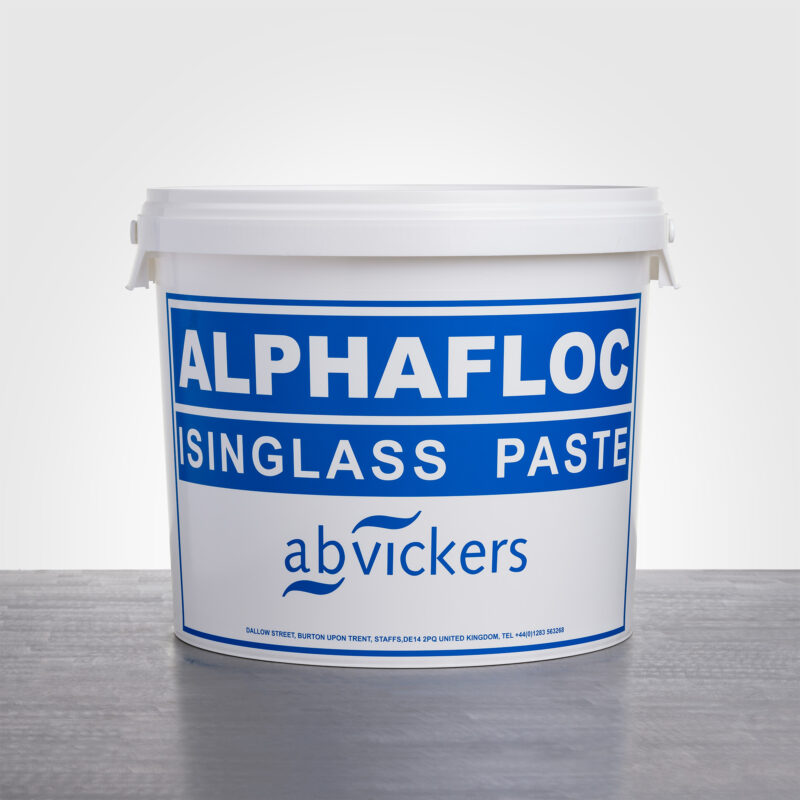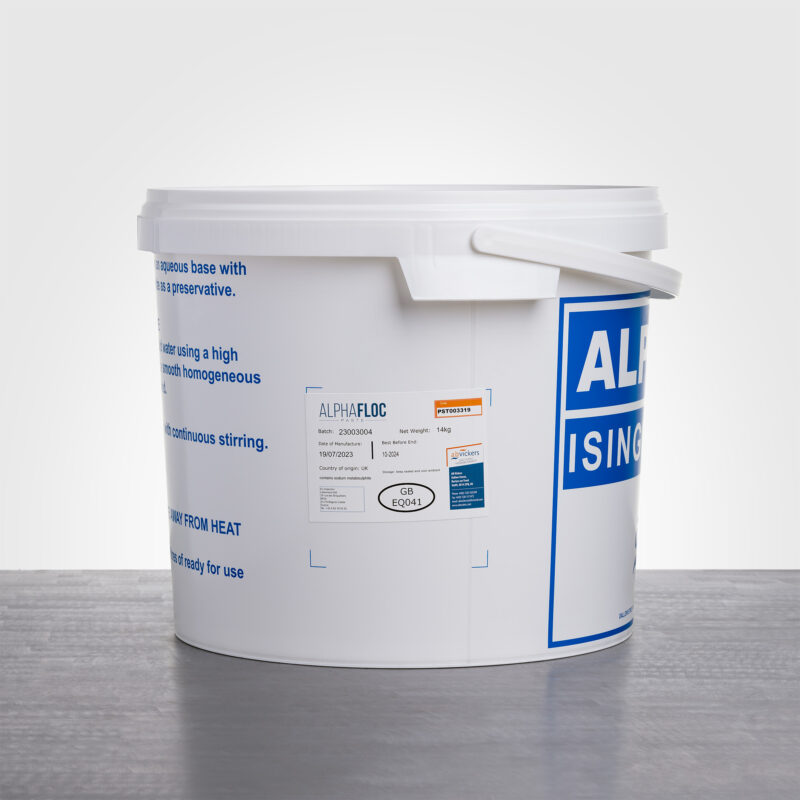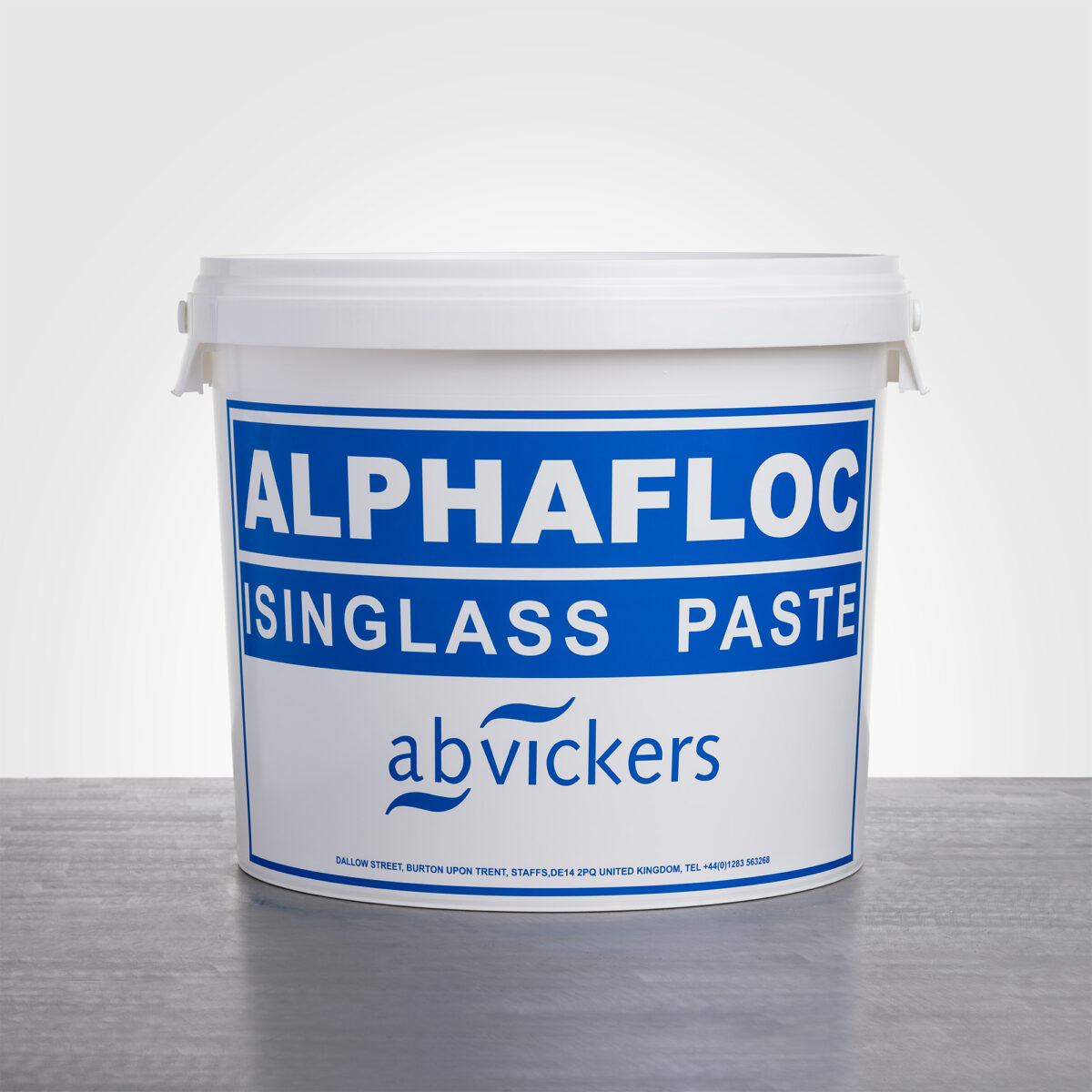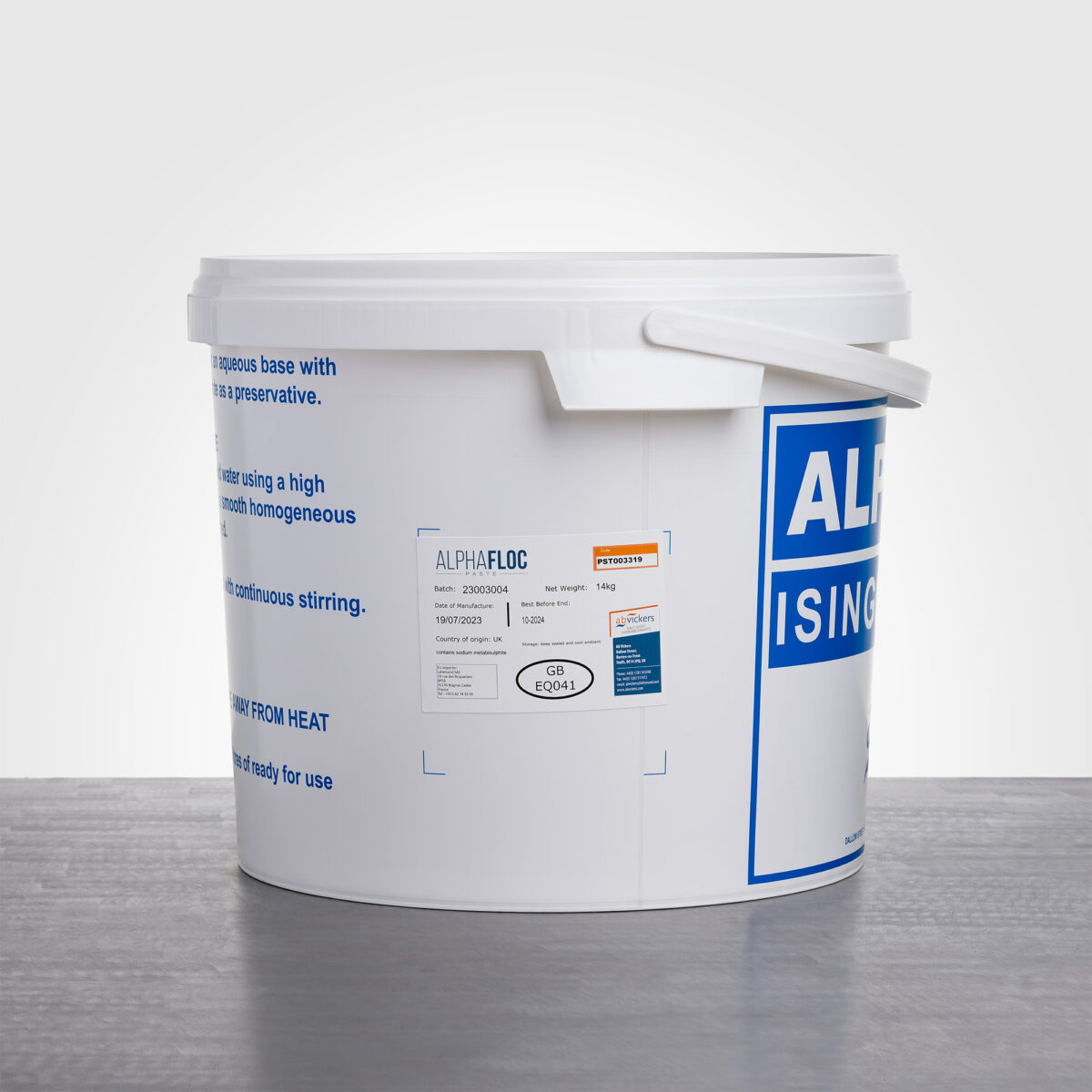
Alphafloc™ paste
Alphafloc™ isinglass paste is produced from the clean maws of certain types of fish. These fish maws contain about 98% collagen on a dry ash-free basis. The paste form of isinglass comprises finely divided isinglass in an aqueous base with sodium metabisulphite as preservative. The fish maws are subjected to vigorous cleaning followed by wet size reduction via processing which avoids heat generation (thereby avoiding thermal degradation of the collagen).
The ready for use isinglass produced from the paste is added to beer at the end of fermentation to speed maturation and improve filtration by removing yeasts and protein particles. For ease of use Alphafloc™ paste is supplied with the necessary acid and preservative in a separate sachet. Alphafloc™ viscosity is typically around 50-60,000 cP.




